On Saturday, December 16, 2023, after the passing of Emir Sheikh Nawaf al-Ahmad al-Jaber al-Sabah, Kuwait announced Crown Prince Sheikh Meshal al-Ahmad al-Sabah as the new Emir. Sheikh Meshal, who is the half-brother of the late Emir Sheikh Nawaf, has now stepped into this significant role. Sheikh Nawaf, due to his declining health, had transferred most of his responsibilities to Sheikh Meshal, who has been effectively leading Kuwait since 2021.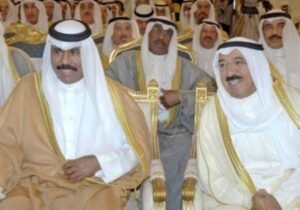
The Declaration of Kuwait’s new Emir
The appointment of Sheikh Meshal as Kuwait’s new Emir was officially confirmed through a statement from the deputy prime minister and the minister of state for cabinet affairs.
As per the constitution of Kuwait, the crown prince ascends to the position of emir if the current emir becomes incapacitated. After taking the oath in parliament, Sheikh Meshal will officially become the Emir. He will then have a period of up to a year to appoint a successor.
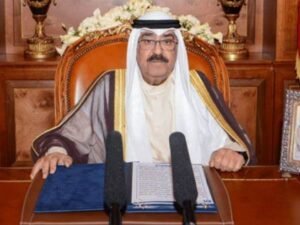
Kuwait’s New Emir
Sheikh Meshal
Sheikh Meshal Al Ahmad Al Jaber, at the age of 83, has stepped into the role of Emir of Kuwait. Before this, he was the crown prince of the oil-rich Gulf nation and was known as one of the oldest crown princes globally. Besides, under Sheikh Nawaf and his Crown Prince Sheikh Meshal, Kuwait continued to align itself more closely with the regional powerhouse, Saudi Arabia.
Sheikh Nawaf: Former Emir of Kuwait

Nawaf Al-Ahmad Al-Jaber Al-Sabah’s reign as Emir spanned from 29th September 2020 to 16th December 2023, ending with his passing. In addition to his role as Emir, he held several key positions including Minister of Interior from 1978 to 1988 and again from 2003 to 2006, Minister of Defense from 1988 to 1991, and Deputy Prime Minister from 2020 to 2023. His tenure as Emir was marked by efforts to navigate and resolve internal political conflicts. His six-decade career in public service primarily focused on domestic issues.
Emir of Kuwait, Sheikh Nawaf’s funeral, attended by family and foreign leaders, was held the 17 December 2023, Sunday. He was laid to rest at Sulaibikhat Cemetery.
New Emir challenges
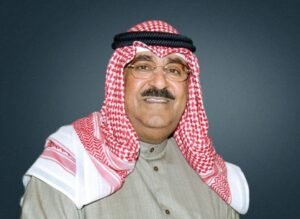
Kuwait is grappling with a number of political challenges:
- Immigrant Workers’ Rights: The country has faced criticism for its treatment of foreign nationals, who make up 70% of the population. The kafala system, which ties foreign workers to a local sponsor for their work permit, has been criticized for leaving workers open to exploitation.
- Statelessness: Kuwait has the highest number of stateless individuals in the region. The issue of the Bedoon, or stateless people, has been likened to the Rohingya crisis in Myanmar due to its sectarian nature.
- Reforms in Gun Control and Education: These are also key political issues that Kuwait is dealing with.
- Government-Parliament Dynamics: The relationship between the government and parliament has been fraught with tension, often due to internal disputes within the ruling Sabah family.
These issues add layers of complexity to Kuwait’s political scene and pose significant challenges for the current Emir.
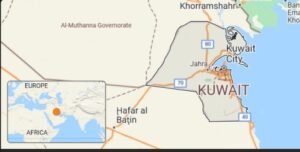
Sheikh Nawaf wanted a peaceful political landscape
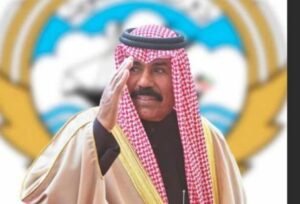
Internal disputes within the Al Sabah family have often manifested in the parliament, with potential successors building their political influence and domestic support.
Before passing on most of his constitutional responsibilities to his chosen successor, Sheikh Nawaf attempted to create a peaceful atmosphere in the domestic political landscape. This included granting amnesty to dissidents, a move long demanded by opposition figures.
However, the political deadlock persisted. This led Sheikh Meshal to take decisive action this year by dissolving the parliament and calling for early elections in June.
Kuwait’s Political openness
Despite the prohibition of parliamentary parties, Kuwait remains one of the region’s most politically open states. It boasts a vibrant political discourse and the region’s most influential elected legislative assembly, comprising Sunnis, Shi’ites, liberals, and Islamists.











